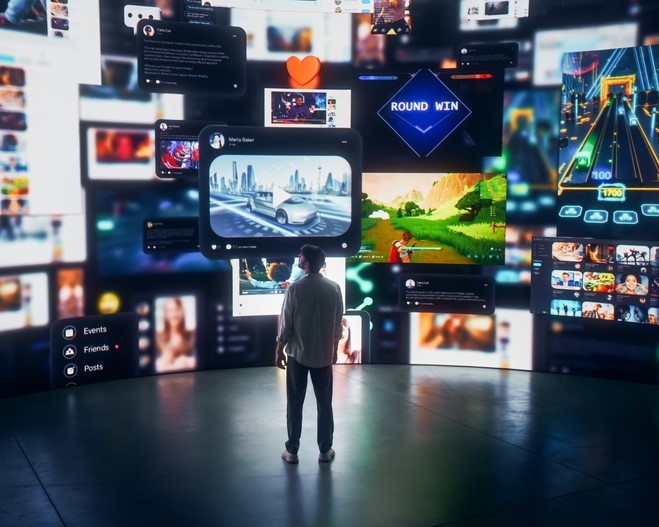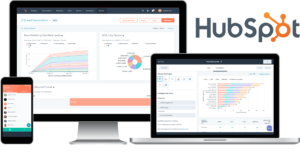Table of Contents
Introduction
Technology is fundamentally in reshaping Our World in 2025 and Beyond (Technology), creating unprecedented opportunities and challenges across every sector of human activity. As we stand at the threshold of a new technological era, the convergence of artificial intelligence, quantum computing, automation, and sustainable technologies is transforming how we work, live, and interact with our environment.
The AI Revolution Transforms Daily Life
Artificial intelligence continues to be the primary force reshaping our world in 2025. The technology has evolved from simple chatbots to sophisticated AI agents that can reason, plan, and execute complex tasks autonomously. These intelligent systems are becoming integral to business operations, with organizations using AI agents to fill gaps in existing software platforms and extend the capabilities of traditional enterprise systems.
The workplace transformation is particularly profound. Modern AI models are processing diverse data types across text, audio, and video, enabling more natural and efficient human-machine collaboration. Companies are witnessing AI’s ability to enhance automation by adding intelligence and decision-making capabilities to routine processes. This shift is not just about replacing human tasks but augmenting human capabilities to unlock new levels of productivity and creativity.
Healthcare represents one of the most promising areas where technology is reshaping our world in 2025. AI-driven drug discovery platforms are accelerating the development of new medications, while precision medicine approaches are personalizing treatments based on individual genetic profiles and health data. The integration of AI in diagnostic imaging and treatment planning is improving patient outcomes and reducing healthcare costs globally.
Quantum Computing Enters the Mainstream
The United Nations has designated 2025 as the International Year of Quantum Science and Technology, recognizing the centennial of quantum mechanics development. Quantum technology is gaining widespread traction worldwide, moving from theoretical concepts to practical applications that are reshaping our world in 2025 and beyond.
Quantum computing is revolutionizing energy forecasting and optimization, enabling more efficient and sustainable energy systems. The technology’s ability to process complex calculations simultaneously is transforming how we approach climate modeling, materials discovery, and financial risk analysis. Researchers are developing quantum-resistant cryptography solutions to protect blockchain networks and digital assets from future quantum threats.
The intersection of quantum computing and blockchain technology is creating new possibilities for secure, efficient digital transactions. Innovative approaches like quantum mining are replacing energy-intensive classical mining methods with quantum computations, demonstrating how technology is reshaping our world in 2025 toward more sustainable practices.
Automation Ecosystem Integration
Beyond individual automated processes, organizations are implementing comprehensive ecosystem automation that connects multiple systems and workflows. This holistic approach to automation is reshaping our world in 2025 by creating seamless digital environments where data flows efficiently between different platforms and applications.
The focus has shifted from simple task automation to intelligent orchestration that can adapt to changing conditions and make complex decisions. Manufacturing, logistics, and service industries are experiencing dramatic improvements in efficiency and quality through these integrated automation systems. The technology is enabling smaller companies to compete with larger enterprises by providing access to sophisticated automation tools previously available only to major corporations.
Sustainable Technology Solutions
Environmental sustainability has become a central concern as technology continues reshaping our world in 2025. Green computing initiatives are addressing the energy demands of advanced technologies like quantum computers and AI systems. Researchers are pioneering solutions to ensure that technological advancement contributes to rather than detracts from environmental goals.
Smart city technologies are optimizing resource usage through intelligent transportation systems, energy-efficient buildings, and waste management solutions. Internet of Things sensors and AI analytics are enabling cities to reduce their carbon footprint while improving quality of life for residents. These sustainable technology implementations serve as models for global adoption.
Blockchain Evolution and Digital Infrastructure
Blockchain technology is maturing beyond cryptocurrency applications to become a fundamental component of digital infrastructure. Enhanced security features, sophisticated smart contract capabilities, and user-friendly interfaces are making blockchain accessible to mainstream businesses and consumers. The technology is reshaping our world in 2025 by providing transparent, secure, and decentralized solutions for supply chain management, digital identity verification, and data sharing.
The integration of blockchain with other emerging technologies is creating new paradigms for digital trust and collaboration. Organizations are using blockchain to verify the authenticity of AI-generated content, secure IoT device communications, and enable transparent carbon credit trading systems.
Healthcare Technology Breakthroughs
Medical technology innovations are reshaping our world in 2025 through personalized treatment approaches, telemedicine expansion, and AI-assisted diagnostics. Wearable devices and continuous monitoring systems are providing real-time health insights that enable preventive care and early intervention strategies.
Gene therapy and regenerative medicine are moving from experimental treatments to clinical reality. Advanced imaging technologies and robotic surgical systems are improving precision and outcomes while reducing recovery times. The democratization of healthcare through technology is making advanced treatments accessible to underserved populations globally.
The Future Workforce and Skills Evolution
As technology continues reshaping our world in 2025 and beyond, the nature of work itself is transforming. New job categories are emerging in AI training, quantum programming, and sustainable technology development. The emphasis is shifting toward skills that complement technological capabilities rather than compete with them.
Educational institutions are adapting curricula to prepare students for a technology-integrated future. Continuous learning and adaptability have become essential skills as the pace of technological change accelerates. Organizations are investing in reskilling programs to help employees transition to new roles created by technological advancement.
Ethical Considerations and Digital Governance
The rapid pace of technological development is raising important questions about ethics, privacy, and governance. As technology reshapes our world in 2025, societies are grappling with how to balance innovation with protection of individual rights and social values. Regulatory frameworks are evolving to address concerns about AI bias, data privacy, and algorithmic transparency.
International cooperation is becoming crucial as technological impacts cross national boundaries. Standards for AI development, quantum computing security, and sustainable technology deployment are being established through global collaboration. The goal is to ensure that technology serves humanity’s best interests while minimizing potential risks and unintended consequences.
Looking Forward: The Continuous Transformation
The transformation we are witnessing in 2025 represents just the beginning of a longer journey. Technology will continue reshaping our world in 2025 and beyond through innovations we can barely imagine today. The key to navigating this transformation successfully lies in maintaining flexibility, investing in human development, and ensuring that technological progress serves the common good.
Conclusion
As we advance into this new era, the integration of human creativity with technological capability promises to unlock solutions to humanity’s greatest challenges. From climate change and healthcare to education and economic inequality, technology is providing tools that can help create a more sustainable, equitable, and prosperous future for all.
The world of 2025 and beyond will be defined not just by the technologies we create, but by how wisely we choose to implement and govern them. The ongoing transformation presents both tremendous opportunities and significant responsibilities as we work together to shape a future that benefits everyone.




